UArizona Hosts Inaugural Disability Studies Conference
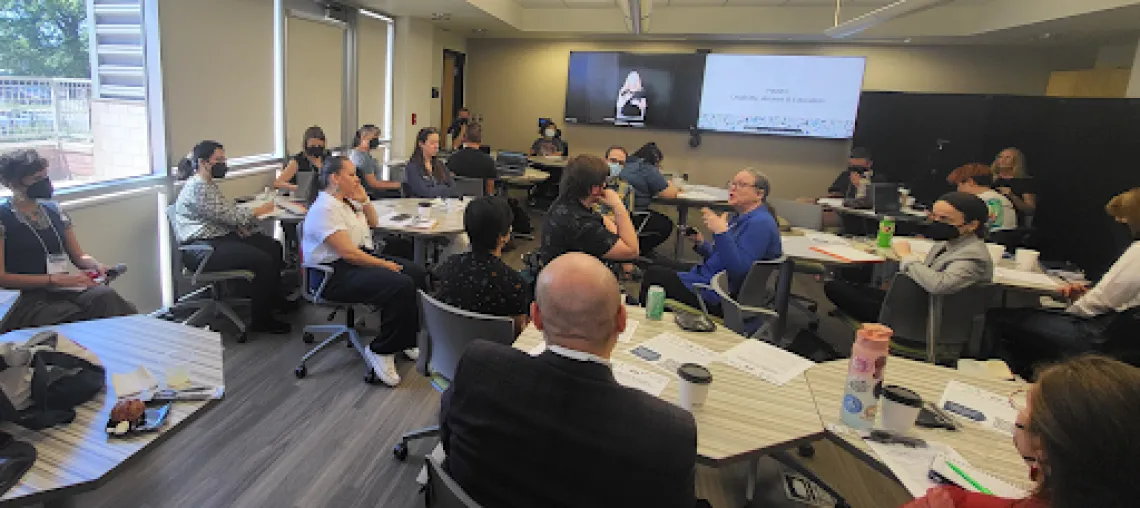
On April 26, the University of Arizona hosted its first Disability Studies Conference. The all-day conference featured presentations, posters, and art exhibits to highlight and celebrate student, faculty, staff, and community scholars, writers, artists and activists doing work in disability studies in Tucson and across Southern Arizona.
The inaugural event was put together by a multidisciplinary planning committee* composed of faculty and staff from across the University, including Austin Duncan, PhD, from the University of Arizona Sonoran Center for Excellence in Disabilities. The committee ensured that the conference had an excellent lineup of speakers, a tight schedule, no technical difficulties, and an accessible space.
Participants had the option to attend the event over Zoom or in person, and every effort was made to make the digital and physical conference spaces accessible to all. Masks were required indoors, except for those for whom masking is inaccessible—like for people with sensory sensitivities. Closed captioning and ASL interpretation were available for all the presentations. Turnout was even larger than anticipated, with attendees filling the conference room wall-to-wall.
The presenters covered a wide range of topics, reflecting the many disciplines that disability studies informs and is informed by. These disciplines included anthropology, art, medicine, literature, sociology, computer science, and more. Specific topics included depiction of mental illness in picture books, the intersection of Indigenous cultures and deaf culture, use of music to promote social and emotional skills, use of Artificial Intelligence (AI) and adaptive learning to make education accessible, a survey of attitudes toward disability at UArizona, and more.
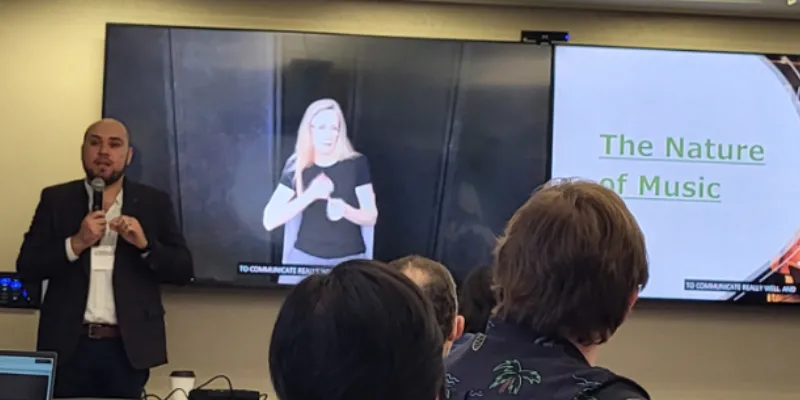
Attendees left the conference with valuable insights in the field of disability studies. As an example, in his presentation on music’s potential to improve social/emotional skills, Carlos Garcia-Ramirez described how this process works with kids with autism. Children in general, and children with autism especially, often have difficulty with naming and expressing their emotions. The teacher or therapist will play a piece of music that is chosen by musicologists to evoke a specific emotion, like happiness or sadness. The teacher or therapist will ask the child, “How does the music make you feel? What do you feel in your body? What would you call this?” In this way, it helps children understand the more abstract elements of emotional experience.
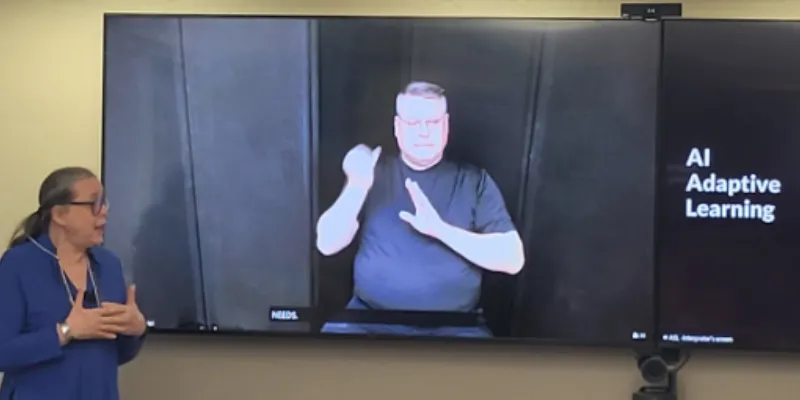
Similarly, in her presentation, Dr. Kathleen Kennedy described the ways that Artificial Intelligence could possibly be used to improve education for students with disabilities. Based on the principles of Cognitive Load Theory, Distributive Learning, and Retrieval Practice, AI could be used to create personalized learning courses based on a student’s demonstrated strengths, weaknesses, and learning styles.
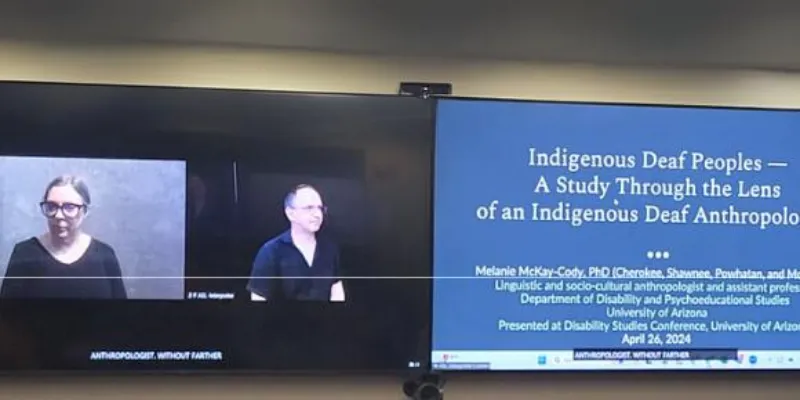
Dr. Melanie McKay-Cody explored the intersection between Deaf culture and Indigenous communities in the U.S. Many indigenous communities’ ideas about disability differ from the commonly used Western medical model. Some do not even have a term for “disability,” instead accepting a degree of variance in people as natural. When this intersects with Deaf culture, which sees Deafness as a culture with its own values and norms rather than as people who share a disability, it interacts in unique ways. Indigenous Deaf people still find solidarity with one another as a culture while maintaining indigenous identities as well, creating cultures that interact with each other while remaining distinct.
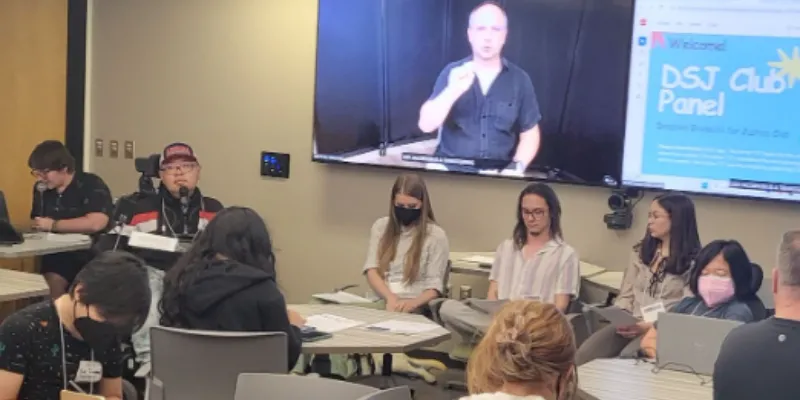
The University of Arizona Disabled Students for Justice Club also shared the results of a survey they undertook on the UArizona campus. Respondents were approached in and around the University Student Union and asked about various disability related topics. When asked about accessibility on campus, responses were mixed: some respondents said the University could do more to accommodate disabled students while others said the University has made progress in this area. Some respondents also used terms like “differently-abled”, which are seen as out of favor in the disability advocacy community, illustrating a divide between disability advocates and the general public.
More than a series of presentations, the conference was an opportunity for true dialogue. After each set of presentations, both the presenters and attendees asked questions of each other in a panel discussion. Panels were grouped by general topic, with topics including Disability, Rhetoric, and Media Analysis as well as Identity Formation & Narrative. For example, during a discussion on identity formation and narrative, presenters Lia Bachmann and Maria Hernandez-Etura discussed the similarities and differences in the ways their work approaches feminist subjectivity with a disability focus.
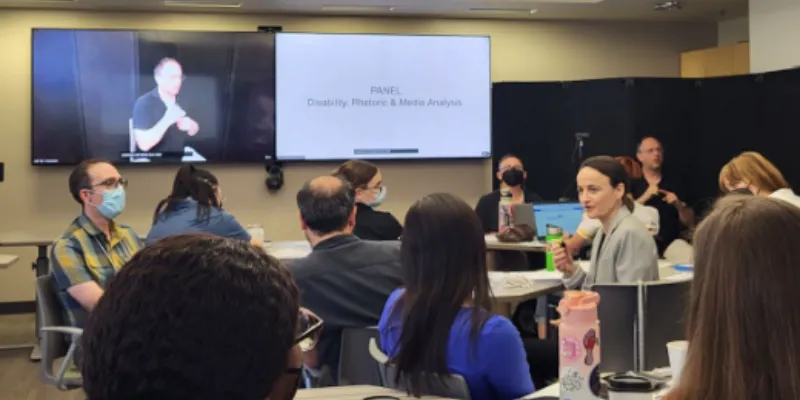
According to organizers and attendees, the conference was a resounding success. The conference was a space to share ideas, experiences, and hopes for the future of disability studies. For the next iteration, the organizers hope to move the conference to a bigger space that can accommodate the large audience.
*The conference planning committee included the Disabled Staff and Faculty Coalition (University Initiatives & Policy), Disability Studies Initiative, Disability Cultural Center, Disability Resource Center, Sonoran Center for Excellence in Disabilities, and the College of Medicine - Tucson Office of Diversity, Equity & Inclusion.
